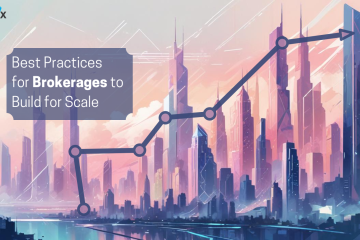Did you know that jam and jelly are not the same? Also, did you know that biscuits and cookies are different from each other? Well, some things look alike and we also start believing it without trying to understand the subtle differences between them. The same goes for online marketplaces and e-commerce websites.
Many entrepreneurs seem to have given up on doing thorough research on identifying the nuances of e-commerce and marketplace platforms. What’s more important is that one should definitely know what they are building for bringing their business to online mode. So, here’s an elucidation of the differences between e-commerce websites and online marketplace platforms. Let’s understand in detail.
Targeting the audience and marketing strategy
As different as they are, the approach towards marketing and targeting an audience must be clear right at the outset, be it online marketplaces or e-commerce solutions. Typically, e-commerce solutions are built for a target audience that constitutes of buyers while in an online marketplace, the heart of your platform includes both buyers and sellers.
If you look at it from a marketing standpoint, e-commerce enthusiasts will find it harder to drive traffic to their website because it has the buyer audience only. Individual merchants have to spend on bringing the maximum users to the website. On the other hand, marketplaces can take advantage of the different types of users visiting their site. Being a commonplace for many sellers, they will advertise about the marketplace on their own thereby promoting it. This will, in turn, enhance the recognition and brand image of the marketplace.
Engaging the audience
Whether it is a marketplace or an e-commerce site, engaging the audience is necessary to make your business thrive in the long run. The sole aim of marketplaces is to match buyers and sellers and build a network where more merchants can get in touch with buyers and vice versa. They mostly focus on pushing buyers towards more purchases and sellers towards the listing of more services or products.
On the other side, it is time-consuming and a costly affair to engage the audience through an e-commerce platform. Though there are many social media platforms such as Facebook, Instagram, etc. that can help to engage the audience, one might still be targeting the wrong audience. In fact, according to the Pew Research Center, only a mere 3% of the adults using the internet trust the information available on social media.
Focusing on scalability
Marketplaces take fewer financial risks compared to e-commerce websites because they don’t have to sell or buy any products. However, e-commerce websites need to invest regularly and it may take a lot of time to sell or worse still, could even result in no sales. Marketplace platforms are better than e-commerce platforms in the way that the former is more scalable than the latter and can expand at a faster rate.
Evaluating the inventory size
Though a large inventory will allow your buyers to have many options in finding what they need, such an inventory will also require extra efforts for marketing to attract the right type of visitors.
Have you ever heard of the 80/20 rule? Also known as the Pareto principle, it is totally relevant to the development of a marketplace. Well, there will be situations when a small portion of your products will be responsible for the maximum number of sales. Make sure that your inventory has ample room for stocking something else that will sell better.
If we apply the Pareto principle for e-commerce websites, it would mean that sellers would have to get rid of the unsold products by selling them at a much lower price. On the contrary, marketplaces won’t need to worry about this at all because they can easily opt for deactivating the sale of any specific product. What’s more interesting is that marketplaces don’t involve the purchase of products, so there are no additional costs associated.
Checking the time and costs required
Building and maintaining an e-commerce website requires a lot of time and work. Though the ball is in your court to decide on how simple you want your e-commerce platform to be, most startup enthusiasts go for developing complex applications thereby making huge initial investments. This means that it will take a longer duration to launch it.
However, online marketplace platforms already have everything in place. There is no need to spend extra time and money on setting it up; all one has to do is get registered on the website and list/sell. Since the revenue of marketplaces is generally a percentage of the transactions, they have better profit margins too. This revenue can be used for reinvesting into the business to speed up growth.
What’s the final take?
As per a market report by eMarketer, it has been estimated that the global e-commerce market sales will touch a whopping $5 trillion mark by the year 2020. Also, eCommerce news projects that marketplaces all over the globe will own at least 39% of the online retail market by 2020. Both e-commerce and marketplace domains have been constantly evolving but it is always better to know the differences between them if you wish to start your online business. From identifying your requirements for selecting your target audience, it is vital to have a clear idea about this first. This will make it easier for you to choose whether to go for an online marketplace or an e-commerce solution.
Well, after having read the above article, it is clear that building a marketplace solution will be beneficial for your business in many ways. If you are still confused about your decision on choosing the right solution for your business, get in touch with us. We will be glad to guide you on your journey towards finding the next big online marketplace solution.


